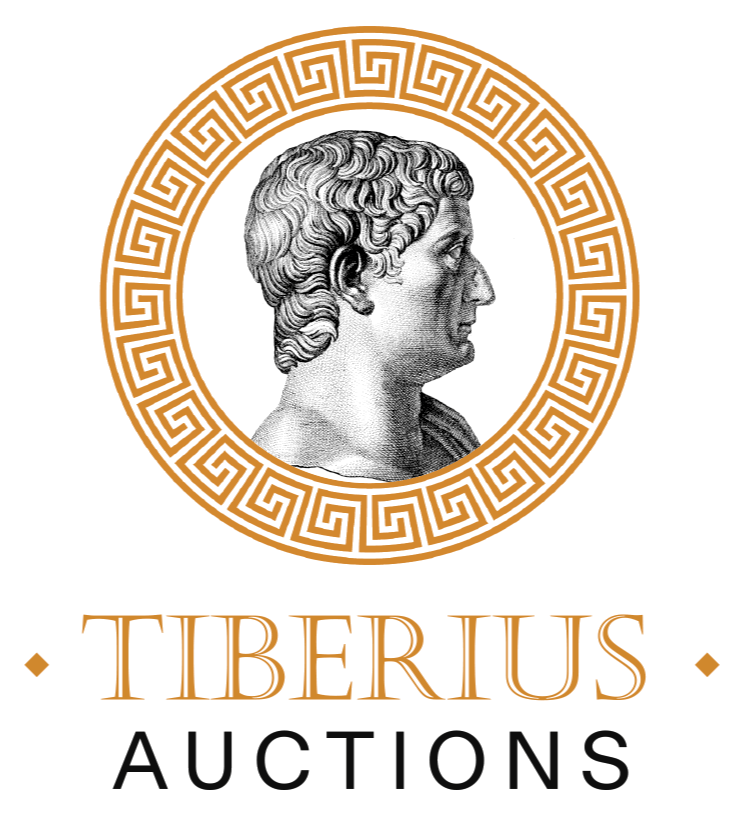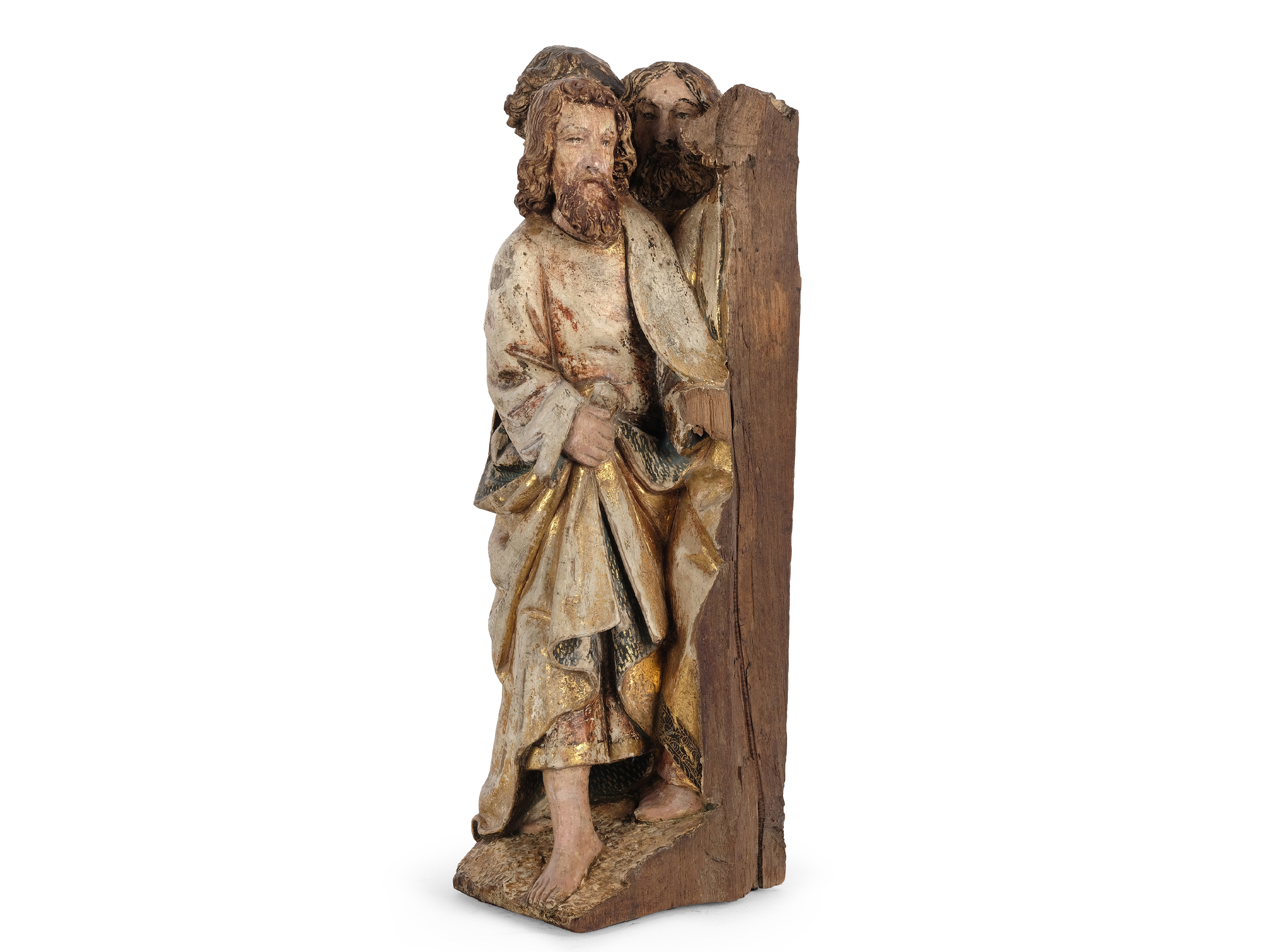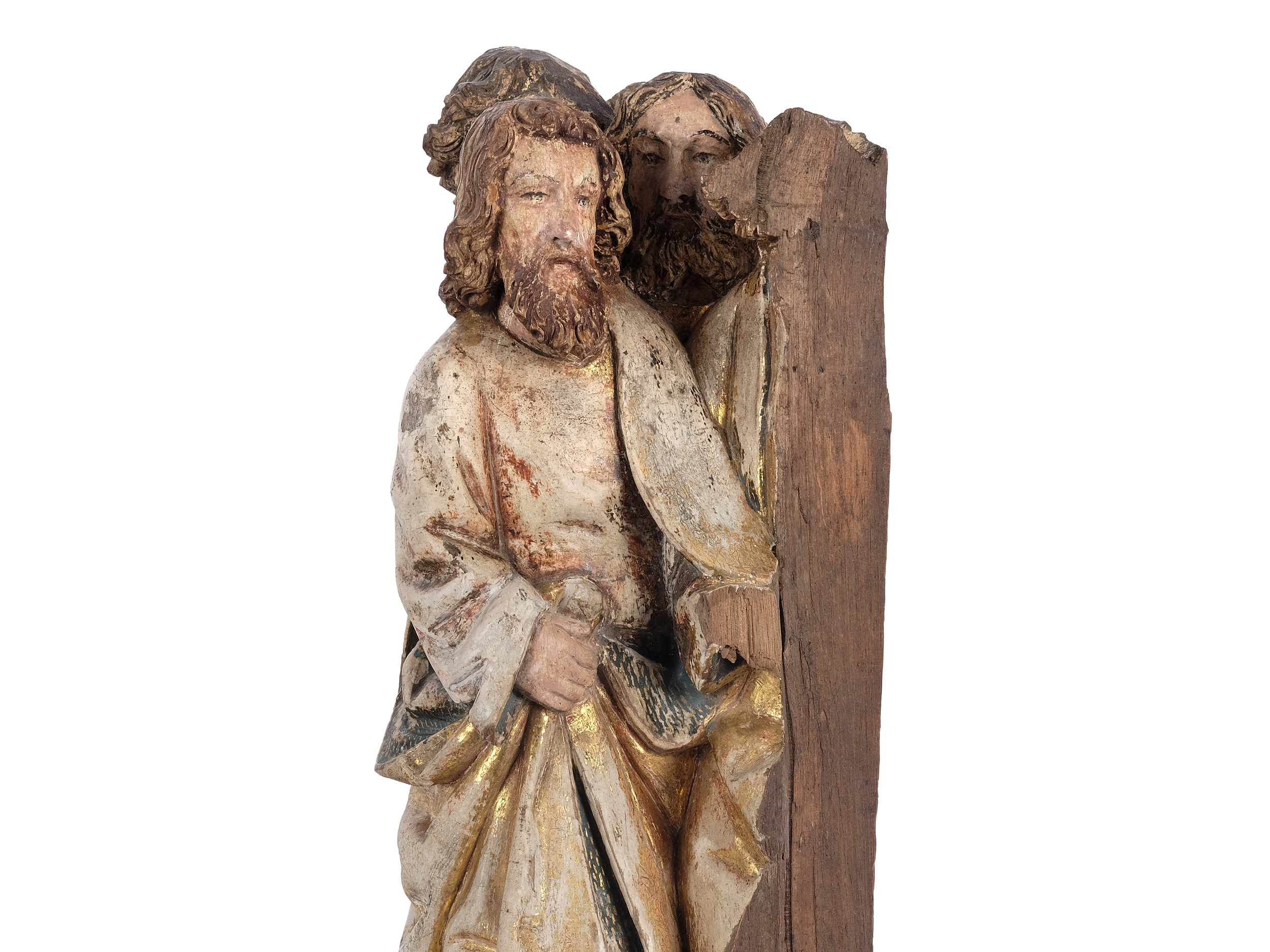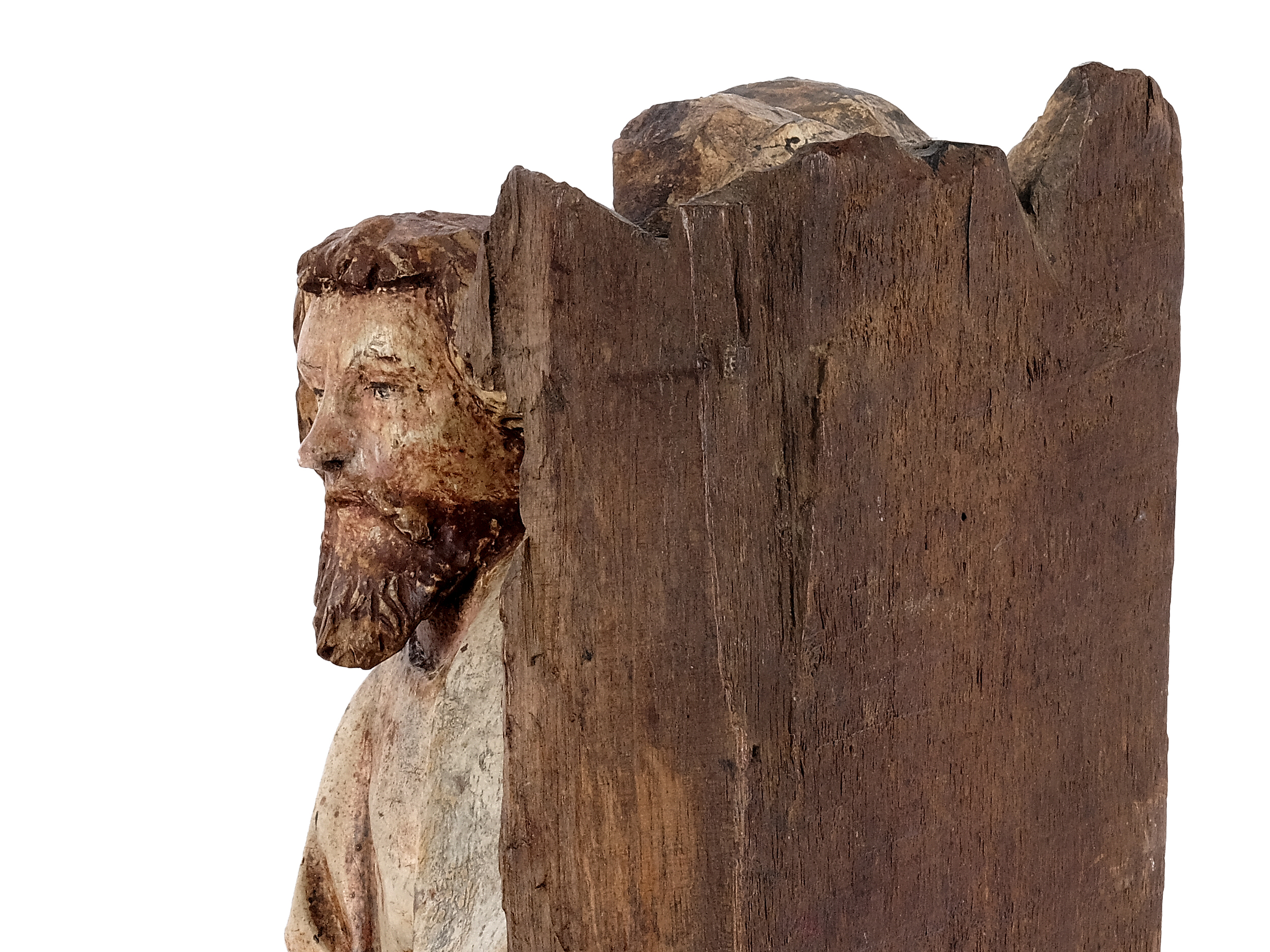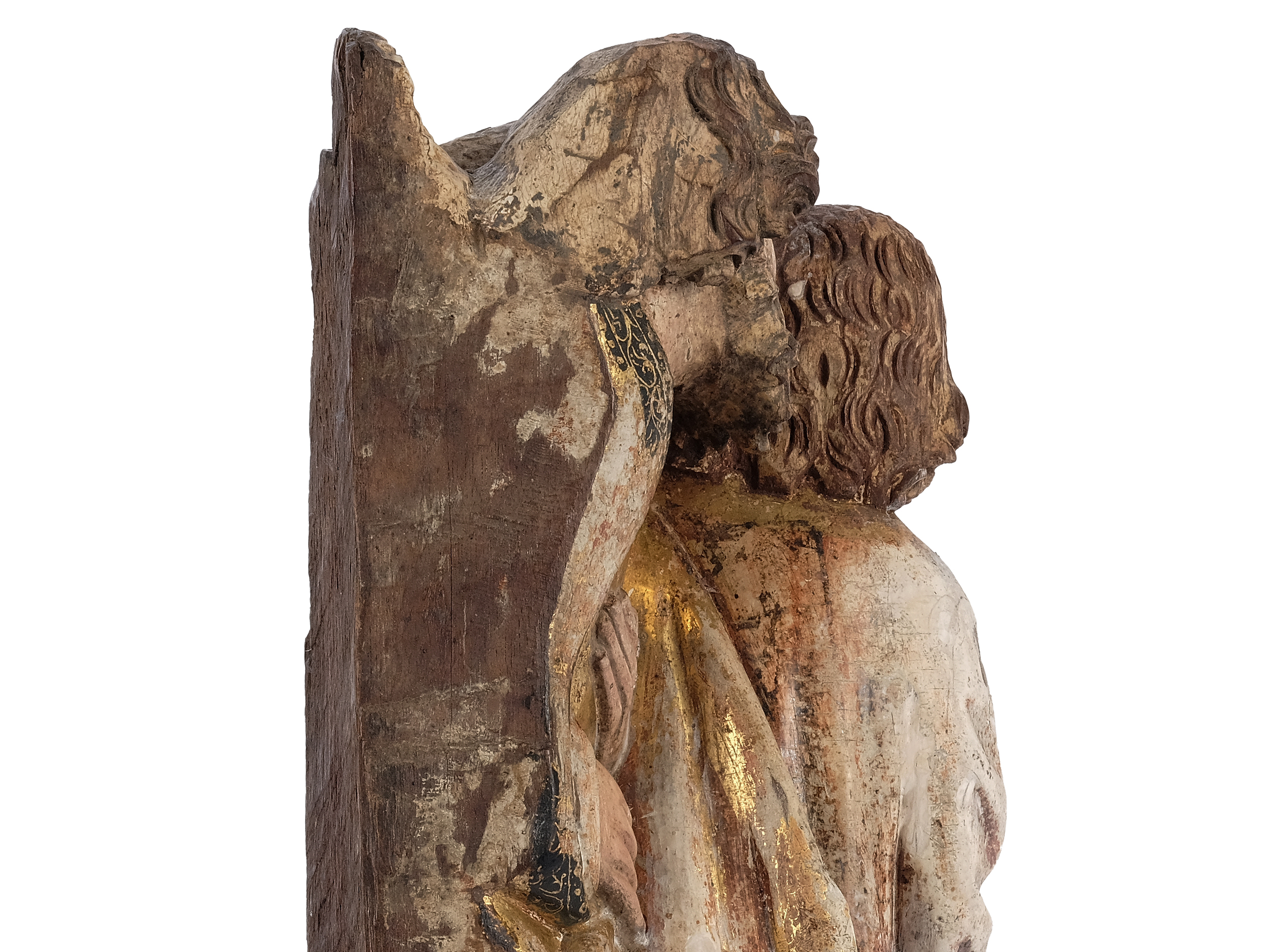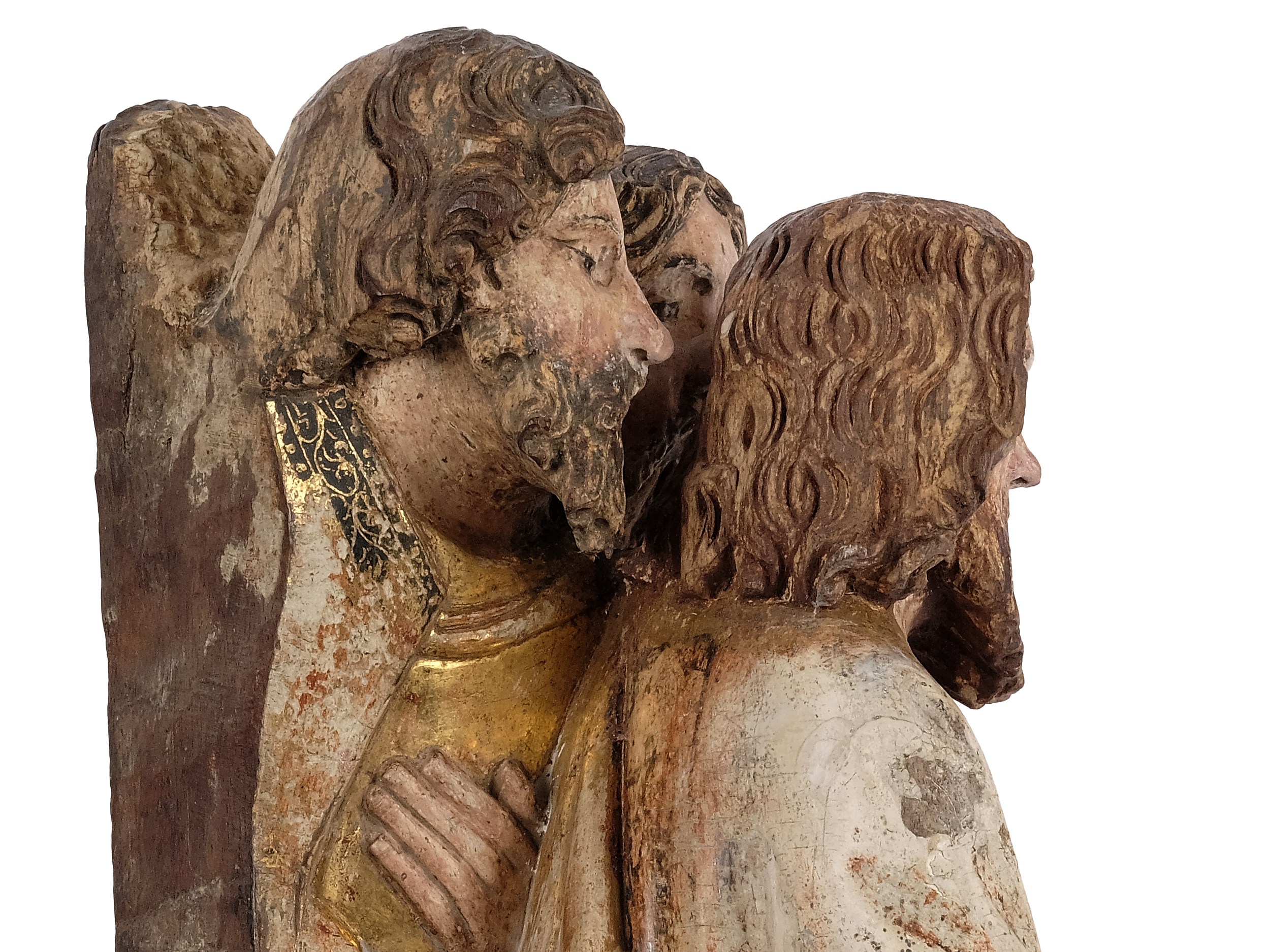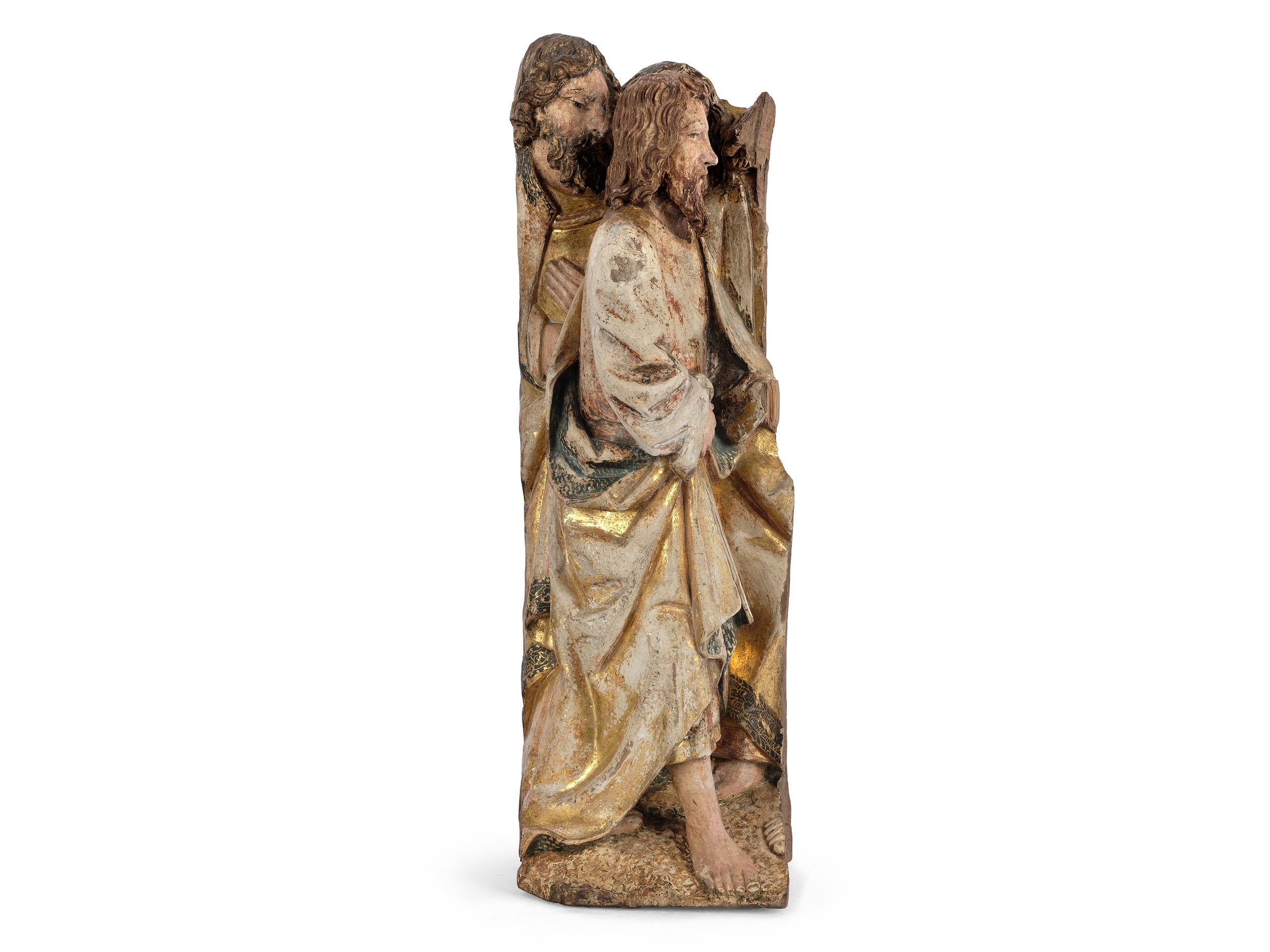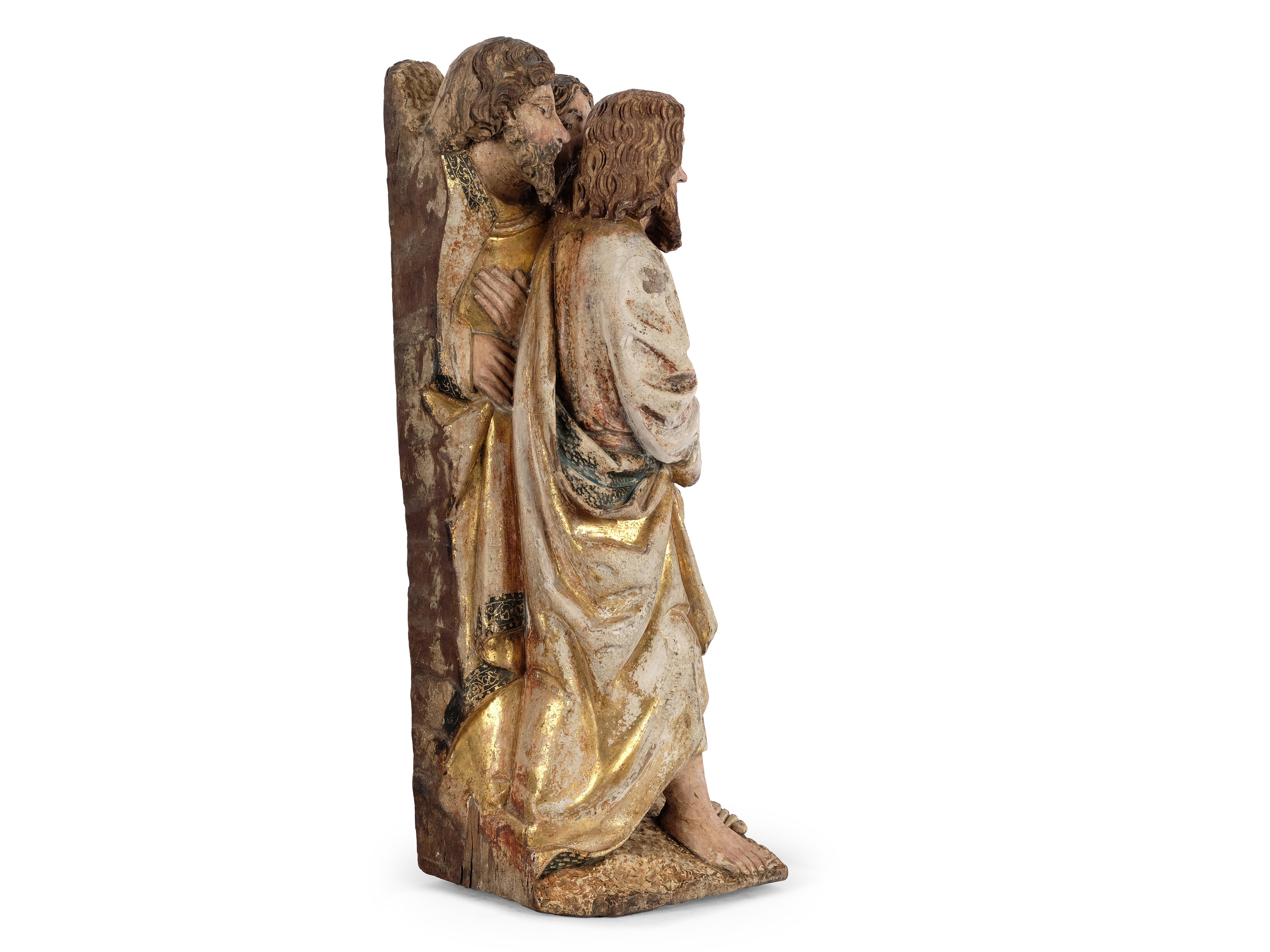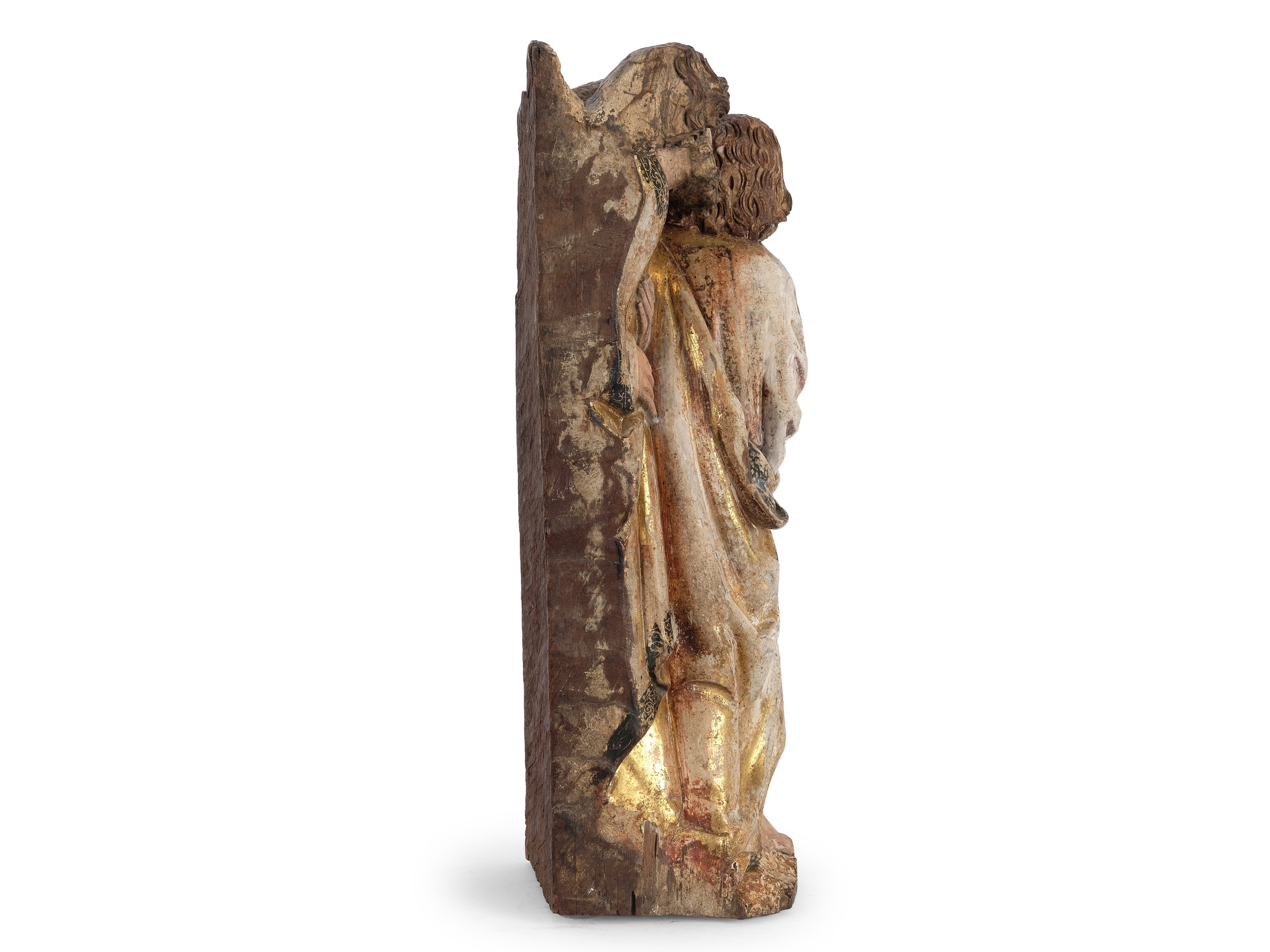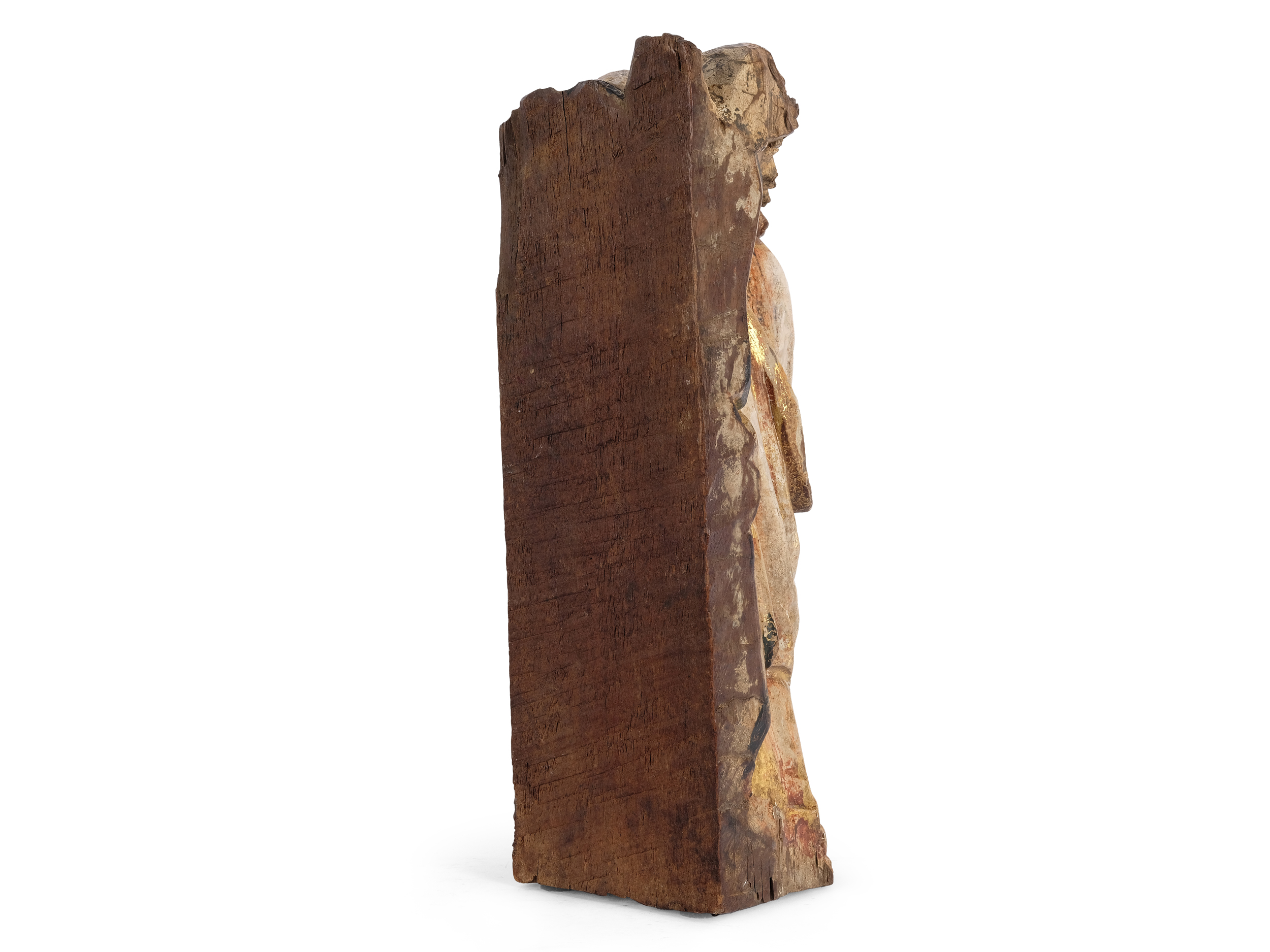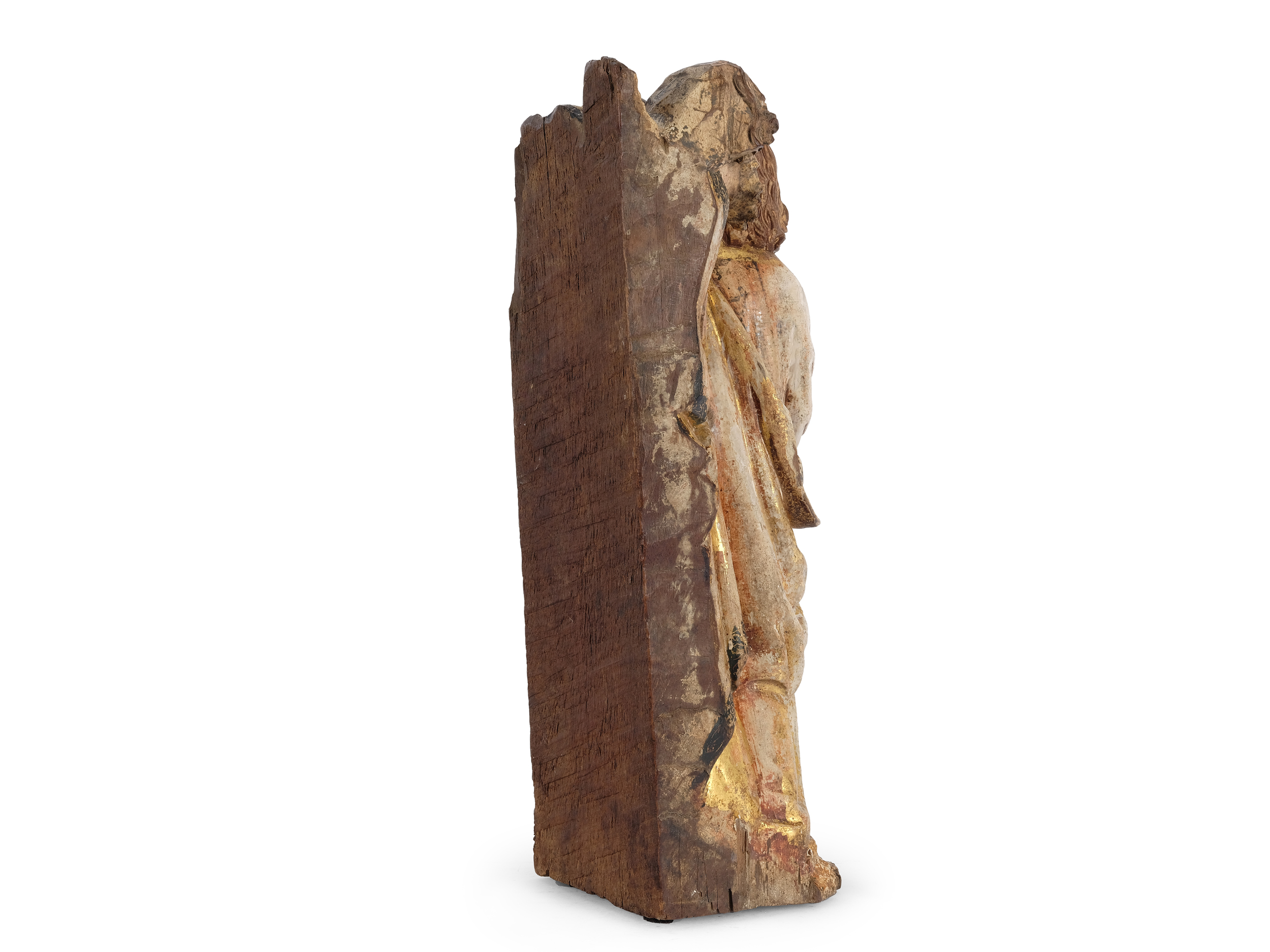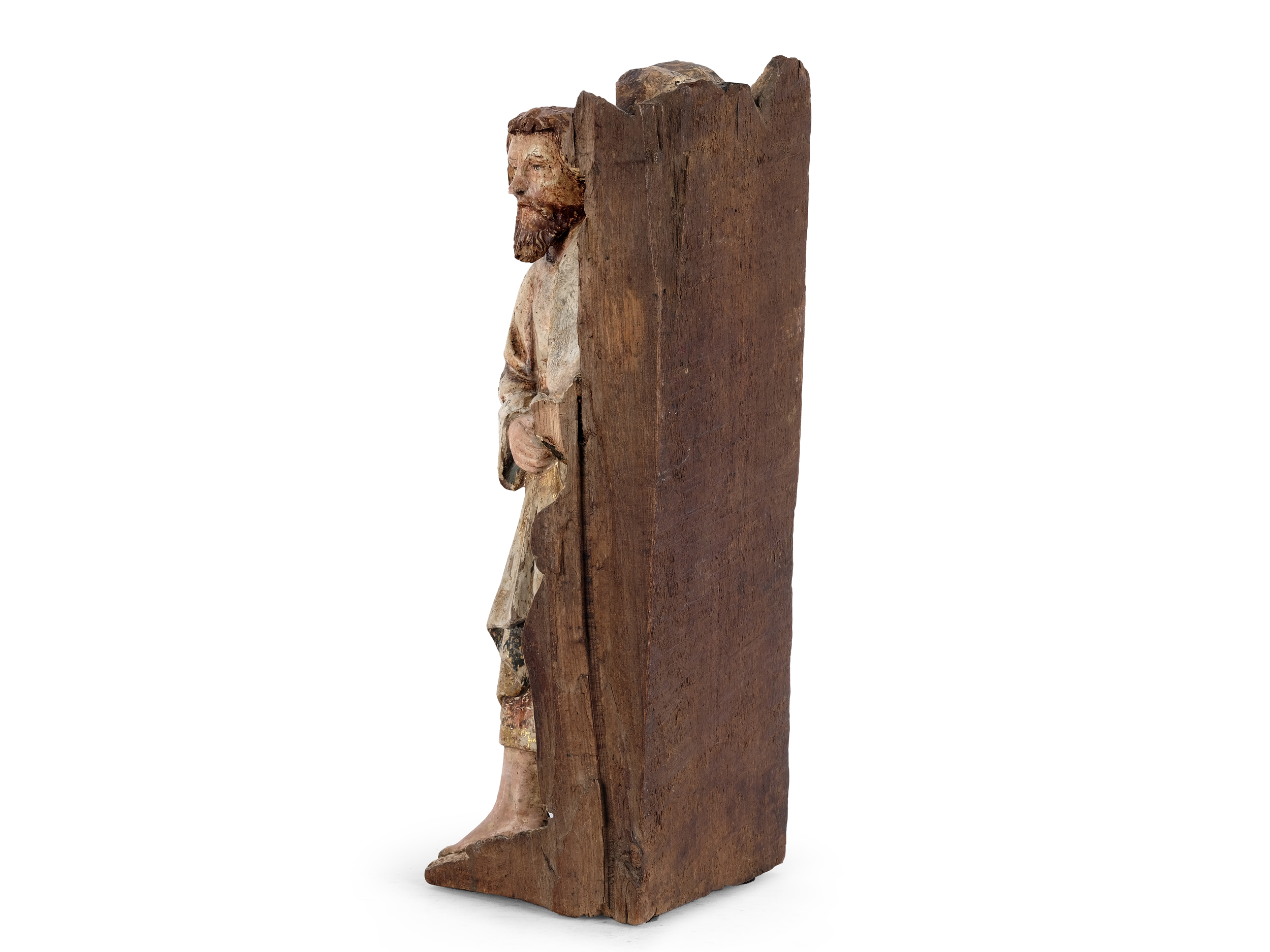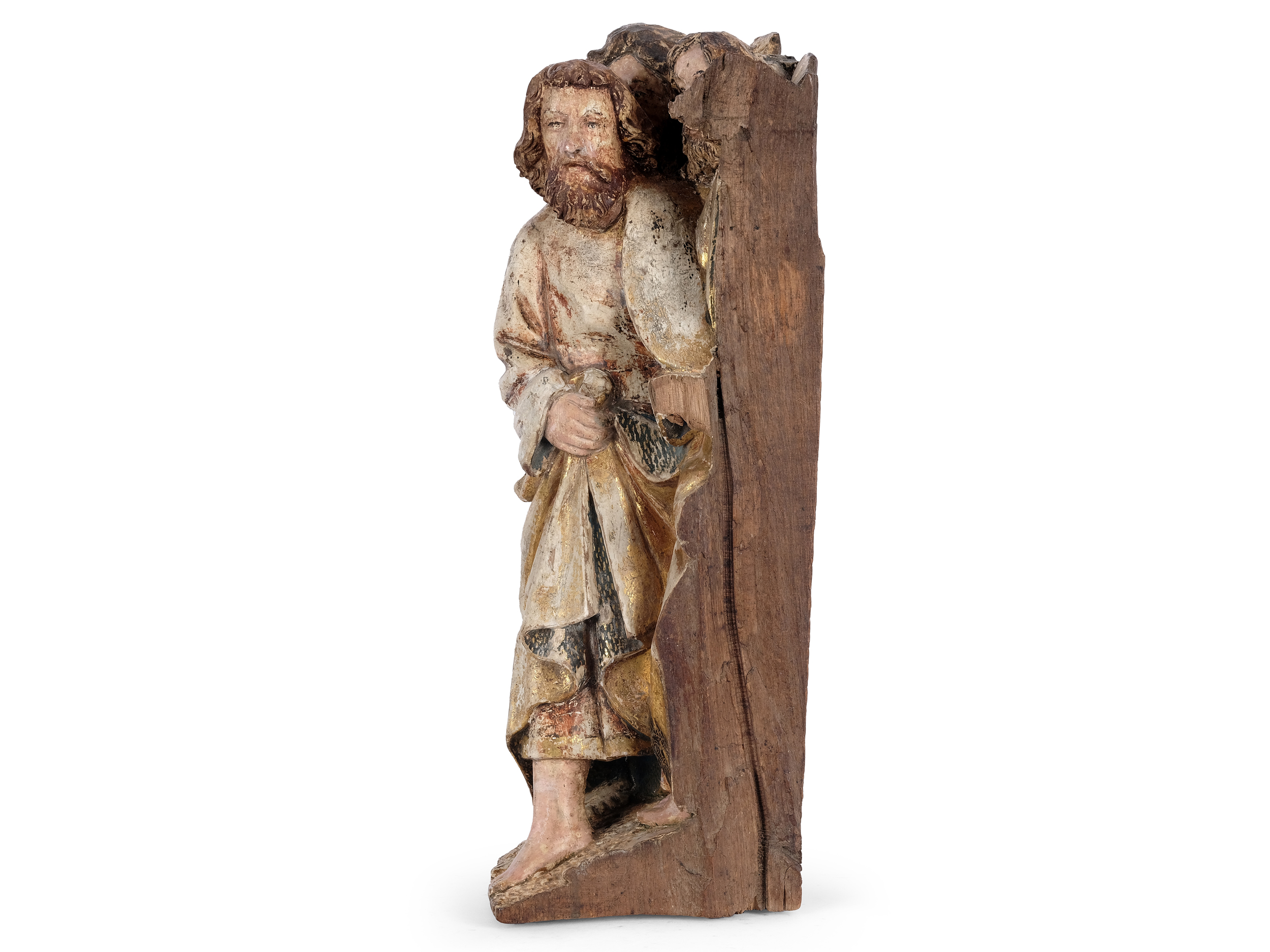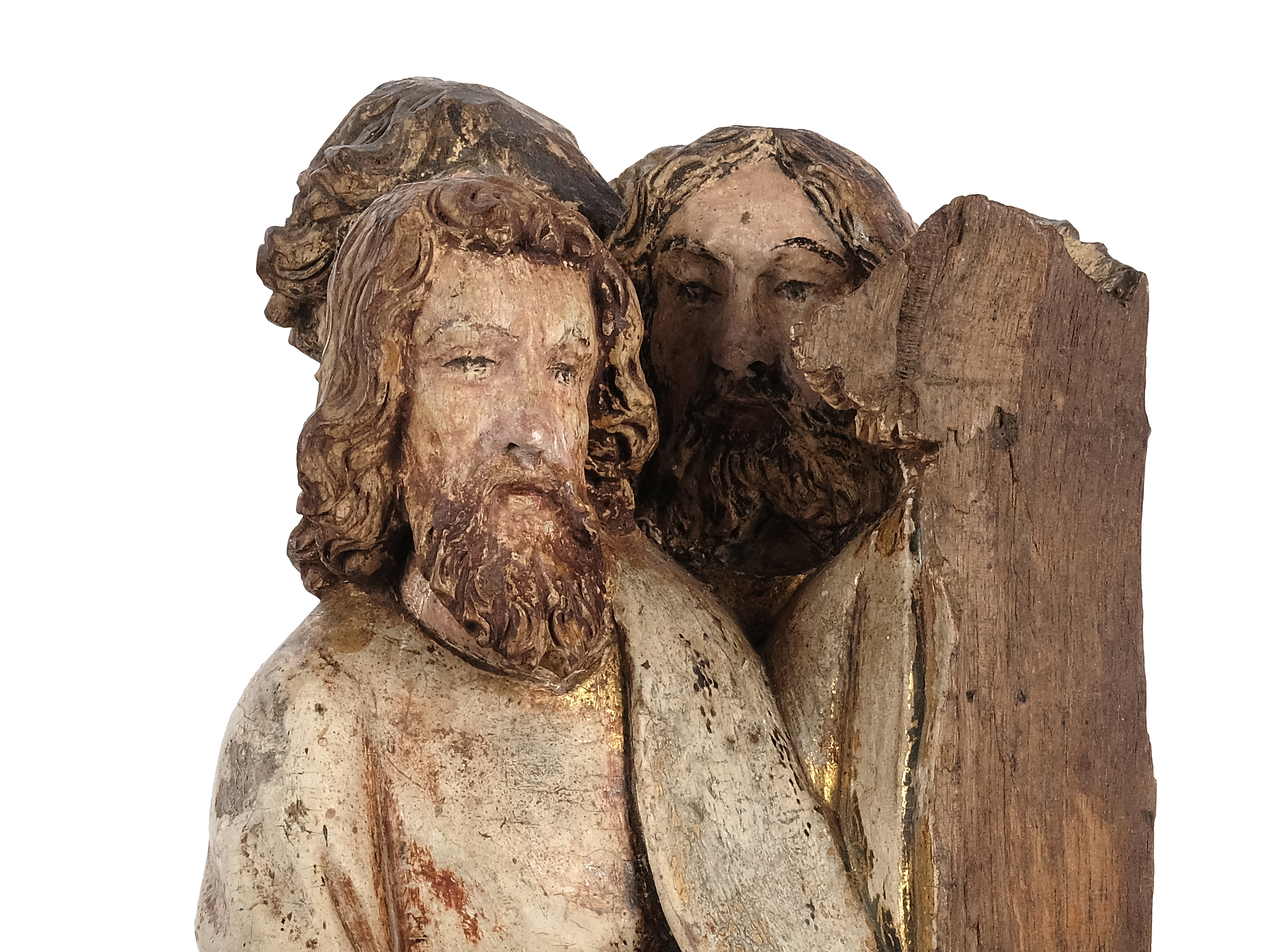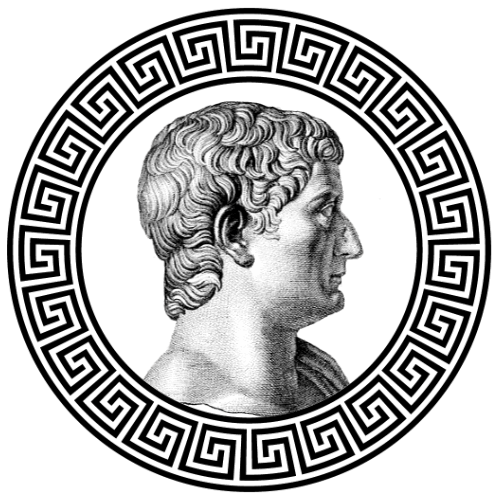Group of Apostles
19th Tiberius Auction
Group of Apostles
Starting price:
€ 1.000
- USD: 1.150 $
- GBP: 879 £
Estimated price: € 1.000 / 2.000
Group of Apostles
Flemish/Brabant
Around 1500
Carved oak
Original polychromy
Height 37.5 cm, width 12 cm, depth 12.5 cm
This finely crafted relief fragment made of oak wood depicts a group of three male figures, which stylistically can be attributed to the region of Flanders or Brabant around 1500. The fragment captivates with its masterful carving technique of the three figures, one completely preserved and two apparent accompanying figures. The posture of the men—stepping slightly forward—suggests a dynamic scene. The carefully carved robes with their deep, softly flowing folds are characteristic features of late Gothic Flemish woodcarving and lend the depiction a lively dynamism.
The men have long, curly hair and full beards, but there are no specific attributes that would allow the apostles to be clearly identified. The typical physiognomies of Peter or Paul – such as Peter’s bald head or Paul’s pointed beard – are also not recognizable here. The figures are arranged in a corner composition, creating the impression of forward movement. Grass is suggested as the floor, creating the impression that they are standing in a meadow or open landscape. The gesture of the man in front, who lifts his cloak slightly to reveal the hem of his tunic, is striking—a movement that suggests an impending action or an inner impulse.
This gesture opens up various possibilities for interpretation: Is this a group of apostles in the Garden of Gethsemane shortly before Christ is arrested? Could the central figure represent Christ himself – at the moment when he approaches Judas, who will betray him with a kiss? Or are we perhaps even seeing Judas, already taking the step towards betrayal, accompanied by his unsuspecting disciples? The fragmentary preservation of the relief leaves many questions unanswered and allows for multiple interpretations.
Regardless of the exact iconographic interpretation, it is clear that this is a scene from a biblical narrative – presumably from the Passion of Christ, one of the central themes of late Gothic altarpieces. The fine carving, the sculptural modeling of the faces and hands, and the remains of the original polychromy make it clear that this is the work of a highly skilled master carver. The preserved colors—in warm red tones, ocher, and gold—emphasize the depth of the depiction.
The fragment was most likely part of a larger altarpiece, which, through its narrative density, was intended to move the faithful to remember the suffering of Christ. In its present form, the piece conveys not only the technical virtuosity of the late Gothic sculptor, but also the religious intensity of an era in which deep faith and virtuoso craftsmanship were inextricably linked.
